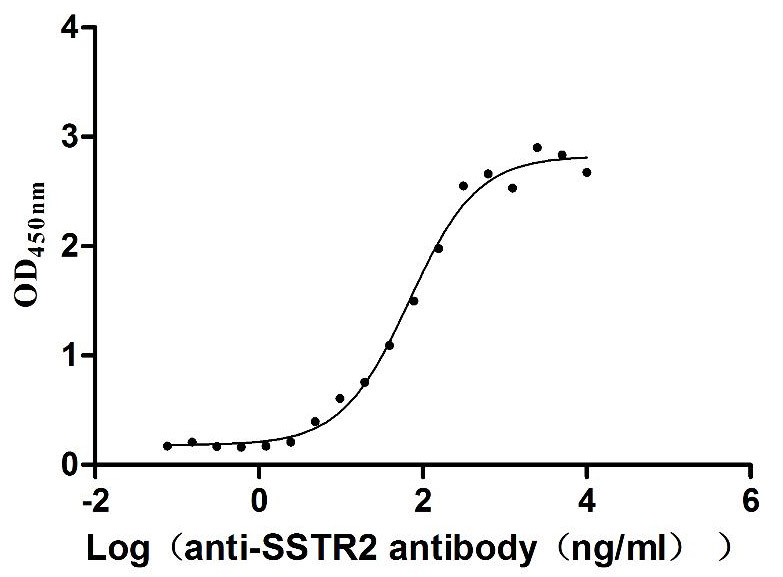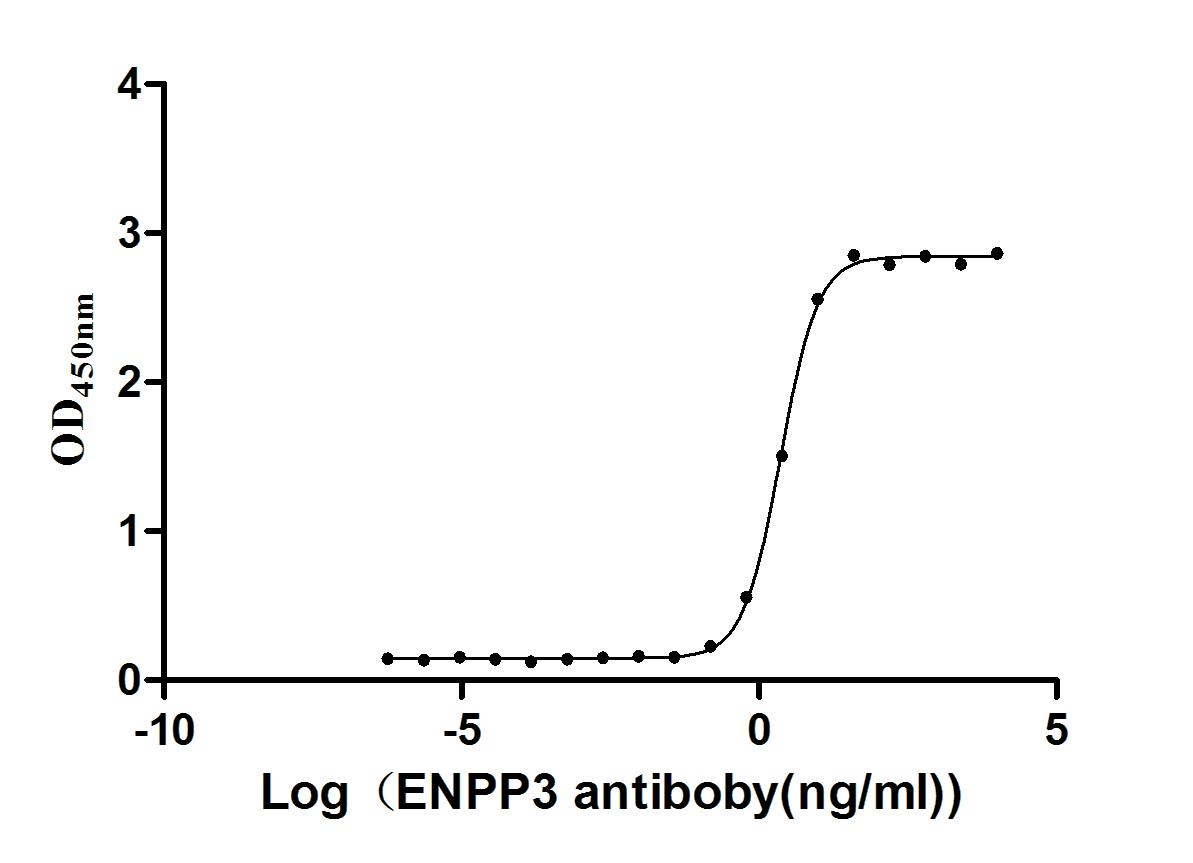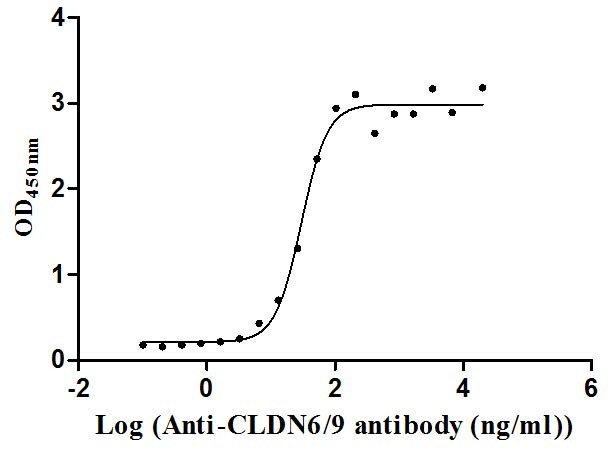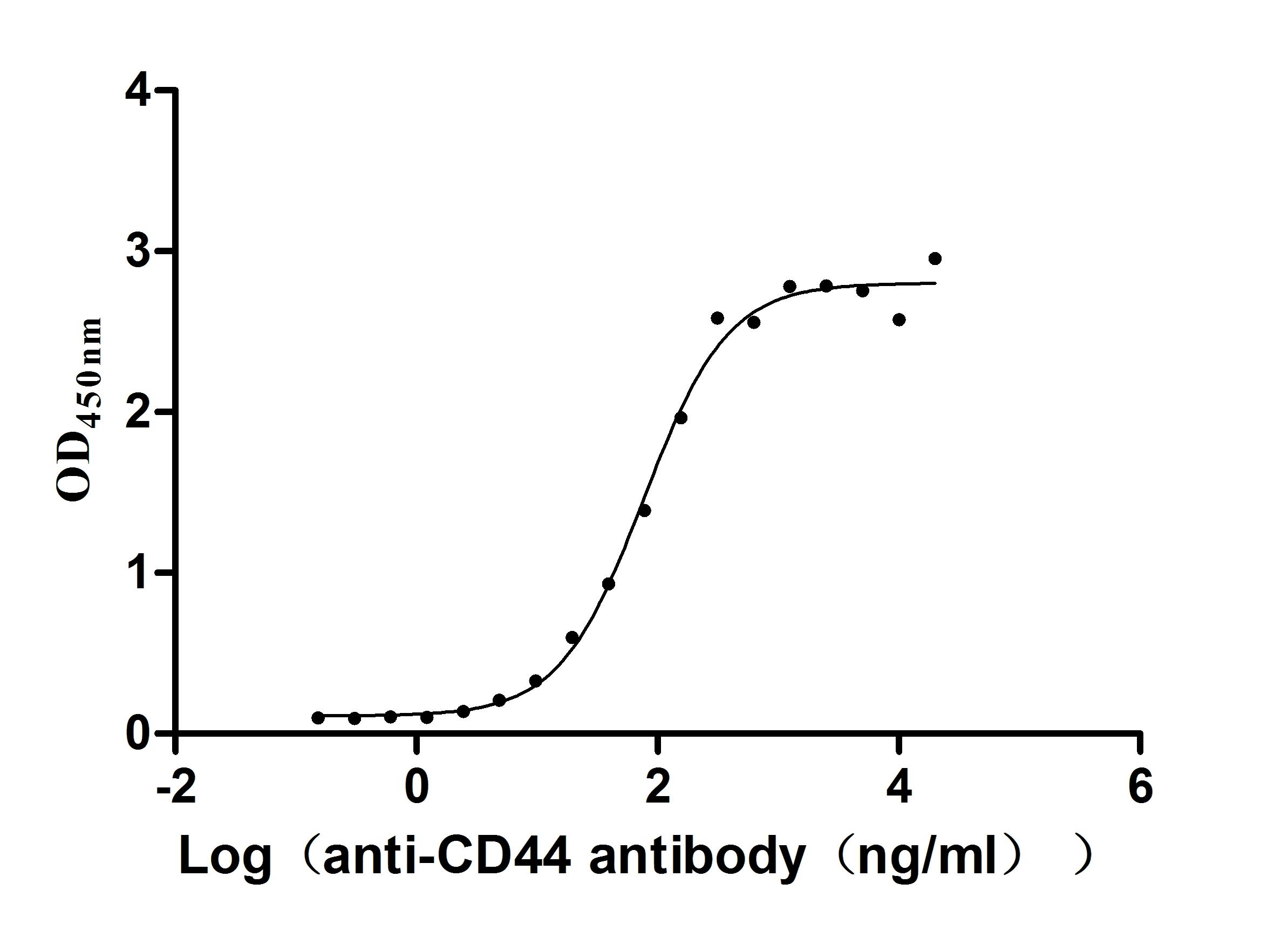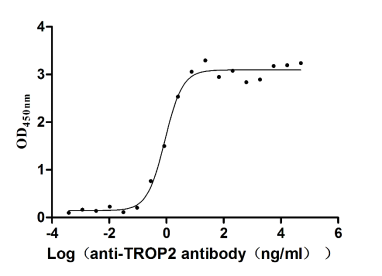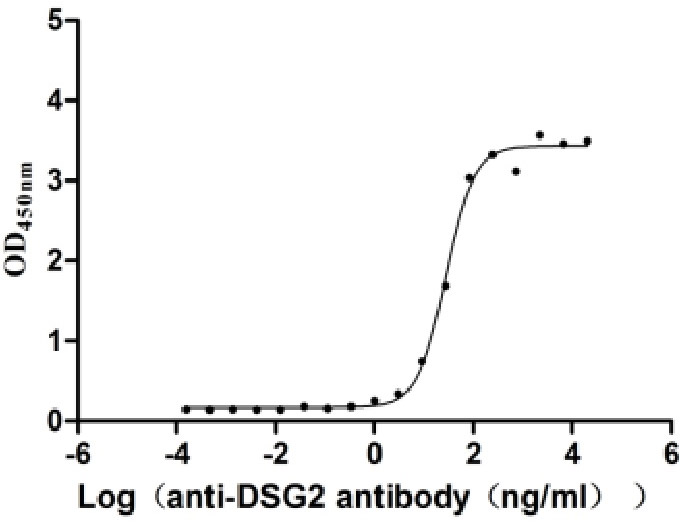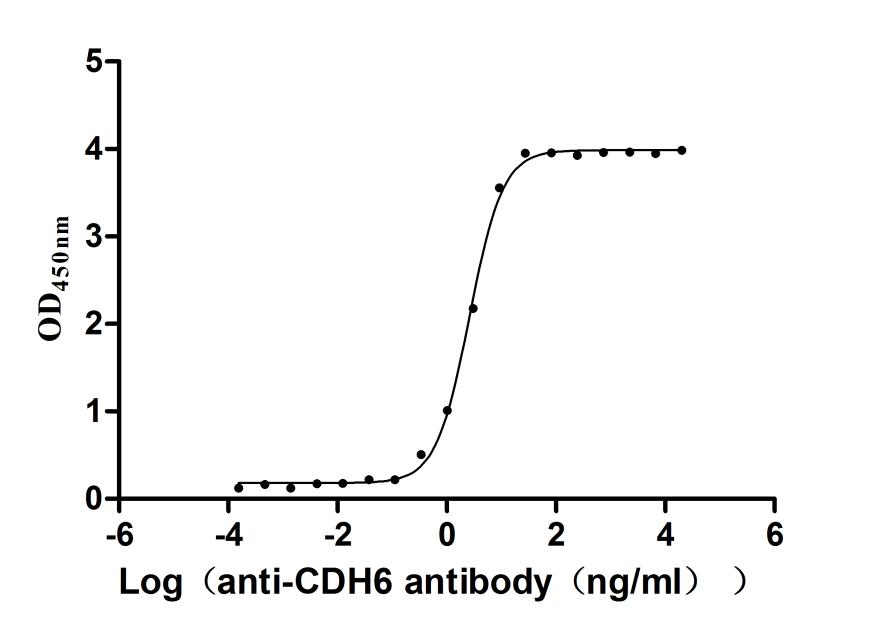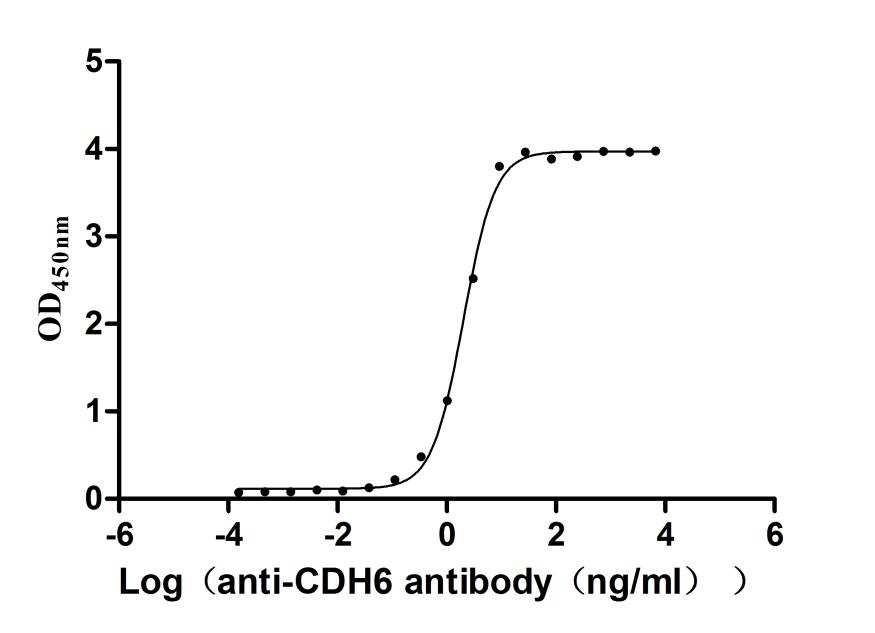Recombinant Human Gastricsin (PGC)
-
中文名稱:
-
貨號:CSB-YP017849HU
-
規格:
-
來源:Yeast
-
其他:
-
中文名稱:
-
貨號:CSB-EP017849HU
-
規格:
-
來源:E.coli
-
其他:
-
中文名稱:
-
貨號:CSB-EP017849HU-B
-
規格:
-
來源:E.coli
-
共軛:Avi-tag Biotinylated
E. coli biotin ligase (BirA) is highly specific in covalently attaching biotin to the 15 amino acid AviTag peptide. This recombinant protein was biotinylated in vivo by AviTag-BirA technology, which method is BriA catalyzes amide linkage between the biotin and the specific lysine of the AviTag.
-
其他:
-
中文名稱:
-
貨號:CSB-BP017849HU
-
規格:
-
來源:Baculovirus
-
其他:
-
中文名稱:
-
貨號:CSB-MP017849HU
-
規格:
-
來源:Mammalian cell
-
其他:
產品詳情
-
純度:>85% (SDS-PAGE)
-
基因名:PEPC
-
Uniprot No.:
-
別名:Gastricsin; EC 3.4.23.3; Pepsinogen C; PGC
-
種屬:Homo sapiens (Human)
-
蛋白標簽:Tag?type?will?be?determined?during?the?manufacturing?process.
The tag type will be determined during production process. If you have specified tag type, please tell us and we will develop the specified tag preferentially. -
產品提供形式:Liquid or Lyophilized powder
Note: We will preferentially ship the format that we have in stock, however, if you have any special requirement for the format, please remark your requirement when placing the order, we will prepare according to your demand. -
復溶:We recommend that this vial be briefly centrifuged prior to opening to bring the contents to the bottom. Please reconstitute protein in deionized sterile water to a concentration of 0.1-1.0 mg/mL.We recommend to add 5-50% of glycerol (final concentration) and aliquot for long-term storage at -20℃/-80℃. Our default final concentration of glycerol is 50%. Customers could use it as reference.
-
儲存條件:Store at -20°C/-80°C upon receipt, aliquoting is necessary for mutiple use. Avoid repeated freeze-thaw cycles.
-
保質期:The shelf life is related to many factors, storage state, buffer ingredients, storage temperature and the stability of the protein itself.
Generally, the shelf life of liquid form is 6 months at -20°C/-80°C. The shelf life of lyophilized form is 12 months at -20°C/-80°C. -
貨期:Delivery time may differ from different purchasing way or location, please kindly consult your local distributors for specific delivery time.Note: All of our proteins are default shipped with normal blue ice packs, if you request to ship with dry ice, please communicate with us in advance and extra fees will be charged.
-
注意事項:Repeated freezing and thawing is not recommended. Store working aliquots at 4°C for up to one week.
-
Datasheet :Please contact us to get it.
相關產品
靶點詳情
-
功能:Hydrolyzes a variety of proteins.
-
基因功能參考文獻:
- Recombinant pepsin C and pepsinogen C were purified from transgenic rice culture medium, and the NH2-terminal 5-residue sequences were verified by amino acid sequencing. PMID: 29108629
- serum levels correlated with age, sex and the level of Helicobacter pylori infection PMID: 27865295
- Pepsinogen-II 100 bp ins/del gene polymorphism and its elevated circulating levels are associated with gastric cancer, particularly with Helicobacter pylori infection and intestinal metaplasia. PMID: 26486507
- Results suggest that rs9471643 CG and rs6458238 AG/AA genotypes have important roles in up-regulating PGC expression, which may partially explain why individuals with these favorable genotypes have decreased risks of getting gastric cancer. PMID: 25857852
- Data show that SNP interactions among H. pylori-related genes PGC, PTPN11, and IL1B, are associated with susceptibility to gastric carcinogenesis. PMID: 26158864
- Serum pepsinogens I (PGI) and II (PGII), gastrin 17 (G-17), and antibodies against whole H. pylori, or cytotoxin-associated gene A (CagA) antigen among 309 consecutive patients, were measured.[Pepsinogen I, Gastrin 17] PMID: 22066020
- The results highlight an important role of PGC rs3789210 and rs6939861 in altering susceptibility to atrophic gastritis and/or gastric cancer. PMID: 25551587
- Pepsinogen II is a good marker of corpus morphological changes before and after H. pylori eradication. PMID: 25028655
- High serum Pepsinogen II level is associ9ated with the progression of gastric precancerous lesions. PMID: 24895149
- An interaction effect of pri-let-7a-1 rs10739971 polymorphism with ERCC6 rs1917799 polymorphism was observed for the risk of gastric cancer. PMID: 24586594
- plasma PG II level significantly correlated with H. pylori-infected gastric cancer PMID: 23326145
- High serum pepsinogen II is associated with gastric cancer development and activity of Helicobacter pylori-associated chronic gastritis. PMID: 24009139
- Levels of pepsinogen/pepsin A and C are higher in the mouth swabs of infants with clinical gastroesophageal reflux. PMID: 23311720
- PGC rs6458238, PGC rs4711690 and PTPN11 rs12229892 were associated with susceptibilities to atrophic gastritis and/or gastric cancer. PMID: 23455381
- Data suggest that serum pepsinogen I/II ratio (pepsinogen A/C ratio) is correlated with diabetic nephropathy and thus may be a biological marker for degree of urinary albumin excretion in patients with type 2 diabetes. PMID: 23047493
- The serum levels of PG II and G-17 were significantly higher in Changle than those in Fuan. PMID: 23117263
- Data suggest that subjects with higher PGI level, and PG I/II ratio are more likely to develop several dyspeptic symptoms. PMID: 23178618
- Serum pepsinogens I (PGI) and II (PGII), gastrin 17 (G-17), and antibodies against whole H. pylori, or cytotoxin-associated gene A (CagA) antigen among 309 consecutive patients, were measured. PMID: 22066020
- Chinese patients with sPGII greater than 10.25 microg/L are at greater risk of various H. pylori-related gastropathies. PMID: 21303408
- PGC gene insertion/deletion polymorphism is negatively related to PGC protein expression in gastric mucosa, but is not related to the serum PGC level. PMID: 19624876
- Pepsinogen C insertion/deletion polymorphism and Helicobacter pylori infection seem to present a positive interaction in the development of gastric cancer. PMID: 19173902
- Pepsinogen C is expressed in a quarter of ovarian carcinomas and might identify a subset of patients with different prognosis PMID: 12128264
- These results suggest that there is some relation between pepsinogen C gene polymorphism and gastric cancer, and the person with homogenous allele 1 predisposes to gastric cancer more than those with other genotypes. PMID: 12508350
- results suggested that only the PGA/PGC ratio can be considered as a biomarker for precancerous lesions of the stomach PMID: 12698190
- human cathelicidin antimicrobial peptide-18 in seminal plasma is processed to generate a 38-amino acid antimicrobial peptide ALL-38 by the prostate-derived protease gastricsin when incubated at a pH corresponding to the vaginal pH PMID: 12759353
- Pepsinogen C can be a good indicator in the screening and diagnosis of precursor of gastric cancer and gastric cancer. PMID: 15200883
- pepsinogen C may be expressed by uveal melanoma and suggest that this protein could be considered as a new, unfavorable prognostic factor in these tumors PMID: 15503827
- Higher levels of Pepsinogen II is associated with early gastric cancer PMID: 15688378
- pepsinogen C genetic variants have a role in gastric cancer PMID: 16937501
- Helicobacter pylori eradication improves gastric histology and decreases serum gastrin, pepsinogen I and pepsinogen II levels in patients with duodenal ulcer. PMID: 17559360
- pepsinogen C has a role in SP-B proteolytic processing in alveolar type 2 cells PMID: 18256027
- role of an insertion/deletion polymorphism in the Pepsinogen C (PGC) gene in the clinical outcome of 172 breast cancer patients PMID: 18447628
- pepsinogens may have a role in esophageal squamous dysplasia PMID: 18844222
- The pepsinogen C gene polymorphism increases an individual's susceptibility to gastric cancer and its precancerous conditions PMID: 19132389
- Decreased pepsinogen I/II ratio is a reliable marker for atrophy in the stomach corpus. PMID: 19731026
顯示更多
收起更多
-
亞細胞定位:Secreted.
-
蛋白家族:Peptidase A1 family
-
數據庫鏈接:
Most popular with customers
-
Recombinant Human Somatostatin receptor type 2 (SSTR2)-VLPs (Active)
Express system: Mammalian cell
Species: Homo sapiens (Human)
-
Express system: Mammalian cell
Species: Homo sapiens (Human)
-
Recombinant Human Claudin-9 (CLDN9)-VLPs (Active)
Express system: Mammalian cell
Species: Homo sapiens (Human)
-
Recombinant Macaca fascicularis CD44 antigen (CD44), partial (Active)
Express system: Mammalian cell
Species: Macaca fascicularis (Crab-eating macaque) (Cynomolgus monkey)
-
Recombinant Human Tumor-associated calcium signal transducer 2 (TACSTD2), partial (Active)
Express system: Mammalian cell
Species: Homo sapiens (Human)
-
Recombinant Human Desmoglein-2 (DSG2), partial (Active)
Express system: Mammalian cell
Species: Homo sapiens (Human)
-
Recombinant Human Cadherin-6(CDH6),partial (Active)
Express system: Mammalian cell
Species: Homo sapiens (Human)
-
Recombinant Mouse Cadherin-6(Cdh6),partial (Active)
Express system: Mammalian cell
Species: Mus musculus (Mouse)


